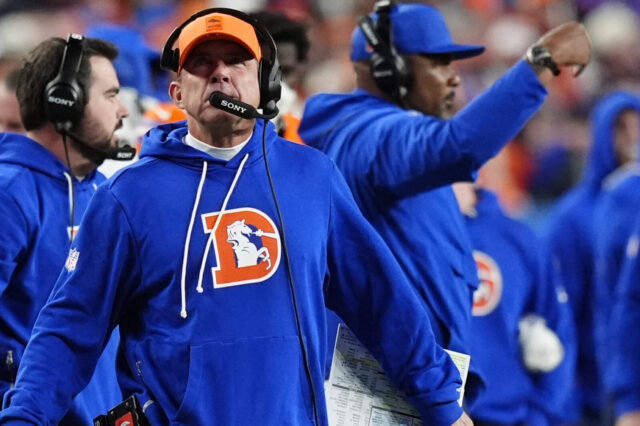On Wednesday, Emmanuel Sanders, one of the Denver Broncos’ best players of the 2010s and a Super Bowl 50 Champion, announced his retirement from the NFL.
“I gave it my all. Every single rep, every single play, I tried to go 100 percent as hard as I can. And that’s why I can hang my hat and say I gave the game everything I had and the game gave it back to me.”@ESanders_10 announces his retirement as a Bronco: pic.twitter.com/q1QTmy673s
— Denver Broncos (@Broncos) September 7, 2022
Sanders was signed by the Broncos ahead of the 2014 season, with hopes he could replace Eric Decker in the lineup, and he more than lived up to expectations. While in Denver, Sanders caught 404 passes (ranking seventh all-time among Broncos) for 5,361 yards (ranking 10th all-time among Broncos) and 28 touchdowns (ranking 12th all-time among Broncos) during his six seasons.
The SMU product led all pass-catchers in both receptions (six) and receiving yards (83) in Super Bowl 50, making him a key contributor to Denver’s most recently acquired Lombardi Trophy. Sanders retired with 11 receptions for 138 yards in the Super Bowl, over the span of his entire career.
More than just a player, Sanders founded the Emmanuel Sanders Foundation, which works to empower children by providing them with new resources and opportunities.
Sanders spent the last three seasons of his career bouncing from the Broncos to the San Francisco 49ers, New Orleans Saints and Buffalo Bills in pursuit of a ring, and though he reached a conference championship game twice and the Super Bowl once, he wasn’t quite able to add to his jewelry collection.
That fact was through no fault of his own though, as Sanders tallied 2,221 yards and 14 touchdowns off 169 receptions over those three seasons, proving he was still a quality NFL receiver. Sanders nearly had a defining Super Bowl moment too, but was overthrown by Jimmy Garoppolo, resulting in the 49ers falling just shy of upsetting the Kansas City Chiefs in the Super Bowl.
Seeing Sanders retire a Bronco is a nice compliment to the way the organization treats its players, both during and after their playing careers.



